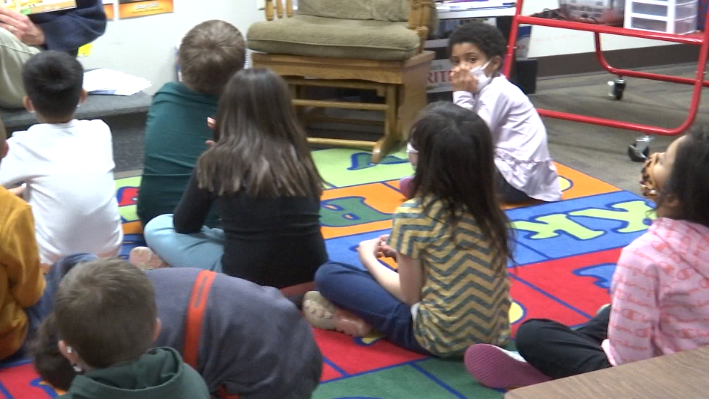When should kids be learning about mental health, and who should be teaching it to them?
— A question often asked as we face what many are saying is a mental health crisis.
We went to Jeannette Myhre Elementary, to find out what steps schools are taking.
Schools all across the nation are taking mental health more and more seriously.
You might be surprised to learn that they’re working mental health problem-solving techniques into the curriculum as early as Elementary school.
I guess we’re trying to take on more of a proactive approach. A reactive approach hasn’t worked and will never work,” John Wangen, School Counselor, Jeannette Myhre Elementary.
We’re told the school now has a more holistic view of education and learning.
“Now we’re looking at social-emotional issues, because if we don’t help them handle that, learning just doesn’t take place,” said Wangen.
“A lot of kids are under a lot of stressors.
Especially with COVID, but also environmentally from their home.
And we’re learning that we need to address those things here at school.
So, we use a curriculum called Second Step to teach all the kids within the classroom,” said Chris Hall, Jeannette Myhre Social Worker.
The role of educators has changed drastically over the years.
Along with, math, reading, and writing, behavioral and mental health intervention strategies are being taught.
A third grade teacher tells us, kids have been picking up the teachings quickly.
“Even the language that they’re using.. saying I need to take some belly breaths because I’m feeling upset.
Just being able to name the emotion they’re feeling kind of having those tools in their toolbox of how to handle it is really cool to see as a teacher,” said Alexandra Randall, Teacher, Jeannette Myhre Elementary.
The goal of these exercises, is to prevent feelings of anxiety, aggression and even depression in young students.
“Kids know that when they come here, that they are valued they are important people. I don’t always know that kids get that in other areas of their lives,” said Wangen.
We’re told, so far, parents have seen a noticeable difference in their kids.
“I’ve talked to some families where their telling me they’re doing these belly breaths.
Even saying oh yeah they go into their bedroom or they go under a table if they’re feeling upset.
And they’re some of the strategies home with them too,” said Randall.
Along with the school’s Second Step program, there are one-on-one therapy sessions for students who they’ve identified as in need of further assistance.
We’re told as of right now, there are 8 who have been referred.
